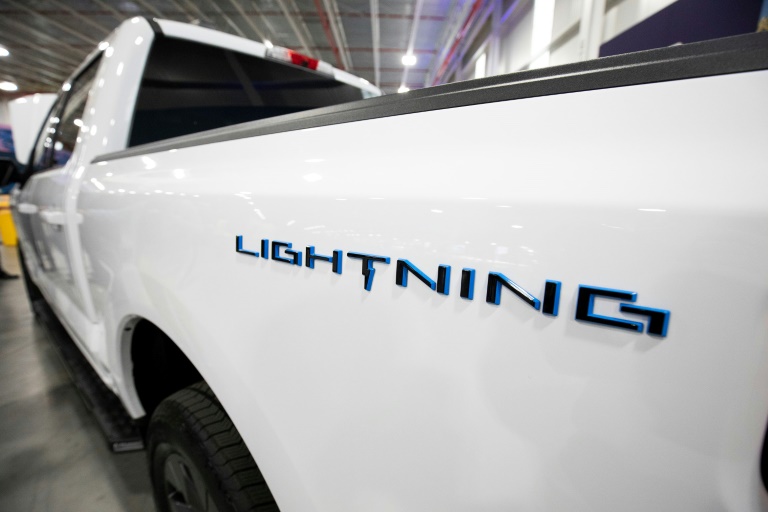AFP
Ford announced Wednesday fresh changes to its electric vehicle lineup, including the scuttling of a planned SUV model, lifting shares despite a hefty near-term profitability hit.
The adjustments — which reflect a slower-than-expected transition to EVs in North America — will result in around $1.9 billion in cost hits to Ford’s earnings, according to a Ford securities filing.
A company news release describing the changes highlighted competitive pressures including low-expense Chinese EV producers and the heightened cost focus of current EV consumers compared with early EV adopters, who view the autos “as a practical way to save money on fuel and maintenance, as well as time by charging at home.”
Ford’s EV business lost about $2.5 billion in the first half of 2024 as the company contends costly production ramp-ups amid demand uncertainty.
Among the changes, Ford is dropping a plan to produce a three-row electric utility vehicle that had previously been expected to be constructed in Oakville, Ontario.
Ford, which had previously pushed back the timing of the offering, will no longer produce the vehicle at all but plans to employ some of the technology for a hybrid offering.
Ford also pushed back the timeframe for a new “next-generation” EV pickup truck to the second half of 2027 after previously saying production would commence in 2025.
Ford also announced plans for a more affordably priced EV pickup that will be midsized and launch in 2027.
Finally, Ford plans a new EV commercial van to begin production in 2026.
“We have built a plan that gives our customers maximum choice and plays to our strengths,” said Chief Executive Jim Farley, adding that the company has “learned a lot” from its EV business so far.
Shares of Ford rose 2.1 percent in morning trading.







